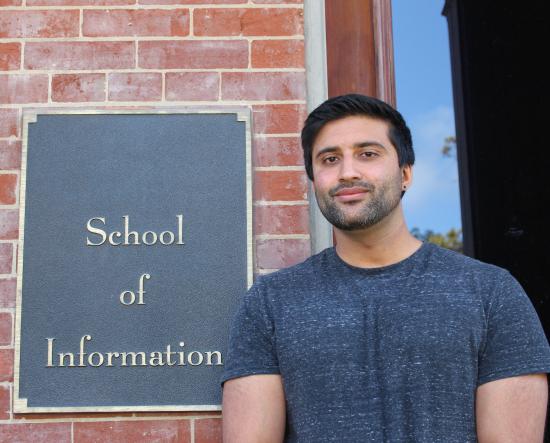Postdoctoral scholar and I School alum Nitin Kohli has been awarded the prestigious iSchools Doctoral Dissertation Award for his dissertation, “Leveraging Differential Privacy While Attending to Social and Political Commitments.”
iSchools is an international organization (not related to the School of Information) centered around supporting and strengthening doctoral programs and research involving information or information sciences at various universities around the world.
In this dissertation, Dr. Kohli examined how to design algorithms to create “privacy-protective statistics” that can attend to different social and political commitments. He identified a prominent issue affecting statistical agencies — just because data was aggregated didn’t mean that individual privacy was guaranteed.
“Since statistics contain information about a dataset, then when more and more statistics are released, more and more information about the dataset is released,” he explained. “After a point, it will become possible to narrow down what possible values must be in the dataset, and what possible values could not be in the data set.”
This process of reverse engineering the data, called a reconstruction attack, has real implications. The U.S. Census discovered that records of 46% of the U.S. population, which is about 142 million individuals, could be reconstructed by using the published 2010 statistics.
Enter: differential privacy, which enables the ability to compute statistics in a privacy-preserving manner by creating carefully crafted “noise.” While effective, there is a tradeoff — the “noise” can inadvertently make it difficult to attend to values such as fairness and health, especially since they rely on accurate information. “My dissertation examined how we can leverage differential privacy effectively while simultaneously attending to other values, even in the presence of this noise,” Dr. Kohli described.
“Protecting privacy is not just an intellectual exercise — it is a serious matter that requires the utmost attention, especially in the face of new and emerging technologies…My goal throughout my research is to aid practitioners, policymakers, and researchers seeking to use mathematical approaches to attend to specific social and political commitments, including privacy, in areas where statistical knowledge is essential to advancing the public good,” he added.
Kohli is a three time UC Berkeley graduate; he received his bachelor’s in mathematics and statistics, master’s in information and data science in 2015, and a Ph.D. in information science in 2021. He is currently affiliated with the UC Berkeley Center for Effective Global Action, Global Policy Lab, and works with Professors Joshua Blumenstock and Paul Laskowski on various projects.
The iSchools Doctoral Dissertation Award recognizes outstanding work in the information field. Applicants must be nominated and go through a two-phase review process.
Professor Deirdre Mulligan, Kohli’s nominator, commented, “Dr. Kohli’s work…is a compelling example of the research advances possible when scholars use techniques from applied mathematics — including game theory and mechanism design, cryptography, and statistics — with research on domain specific needs and problems. The novelty, creativity, and practical contributions of Dr. Kohli’s dissertation makes it an excellent choice for the iSchools Doctoral Dissertation Award.”
Kohli dedicates the award to his 25 year-old self, who applied to Ph.D. programs because he had so many questions about the role that mathematical advances, like differential privacy, could play in society. “This is why the iSchools Doctoral Dissertation Award means so much to me,” he added, “because I wrote my dissertation to answer the questions that I had in the past when I was a young data scientist who felt disillusioned about the work he was doing, hoping one day others who feel the same way or have the same questions I did will be able to build upon my work and continue finding ways to better attend to privacy and other social and political commitments.”
“This award is a testament to a multitude of factors. Of course, it’s a testament to all the work I’ve put in over the years. And it’s also a testament to UC Berkeley – I’ve done my bachelors, my masters, and my Ph.D. here, so it’s safe to say this dissertation is also a product of Berkeley as well.”
Dr. Kohli also thanked his family, Michael Wong and Mike Leong of the Student Learning Center at Berkeley, Professors Deirdre Mulligan, Paul Laskowksi, Joshua Blumenstock, and Mortiz Hardt.










